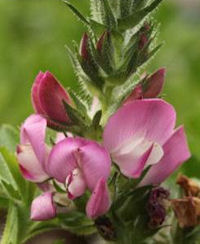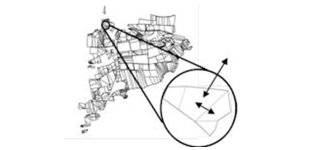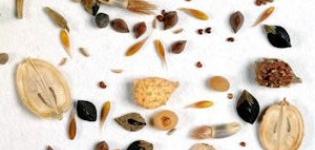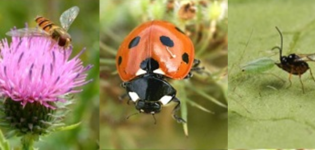 Knowledge of seeds, plants, invertebrates and food webs is increasingly in demand as a background to ecological or environmental risk assessment. For example, engineering projects that impinge on farmland, such as the laying of long-distance pipelines, need to be assessed for their impact on the arable flora and food web. And expertise in GM crops and pesticides is combined to facilitate a broad, system-scale approach to the risk assessment of biotech crops. We contribute to formal guidance documents and are active on European Food Safety Authority committees and working groups.
Knowledge of seeds, plants, invertebrates and food webs is increasingly in demand as a background to ecological or environmental risk assessment. For example, engineering projects that impinge on farmland, such as the laying of long-distance pipelines, need to be assessed for their impact on the arable flora and food web. And expertise in GM crops and pesticides is combined to facilitate a broad, system-scale approach to the risk assessment of biotech crops. We contribute to formal guidance documents and are active on European Food Safety Authority committees and working groups.
In addition, the NASSTEC EU project is funding over 10 research students in Europe to investigate aspects of native seed dormancy, biology and production with a view to restoring degraded land and vegetation in managed and semi-natural habitats.
Current funding: EU AMIGA, contact Geoff Squire. EU NASSTEC, contact Pete Iannetta.
Publications
-
Arpaia S, Messean A, Birch NA, Hokannen H, Hartel S, van Loon J, Lovei G, Park J, Spreafico H, Squire GR, Steffan-Dewenter I, Tebbe C, Voet H van der. 2014 Assessing and monitoring impacts of genetically modified plants on agro-ecosystems: the approach of AMIGA project. Entomologia 2:154doi:10.4081/entomologia.2014.154
-
Birch, A.N.E., Begg, G.S., Squire, G.R. 2011. How agro-ecological research helps to address food security issues under new IPM and pesticide reduction policies for global crop production systems (Invited Review). Journal of Experimental Botany 62, 3251-3261.
-
European Food Safety Authority. 2010. Guidance on the environmental risk assessment of genetically modified plants. EFSA Journal 2010, 8(11), 1879 [111 pp.]. (doi:10.2903/j.efsa.2010.1879)






